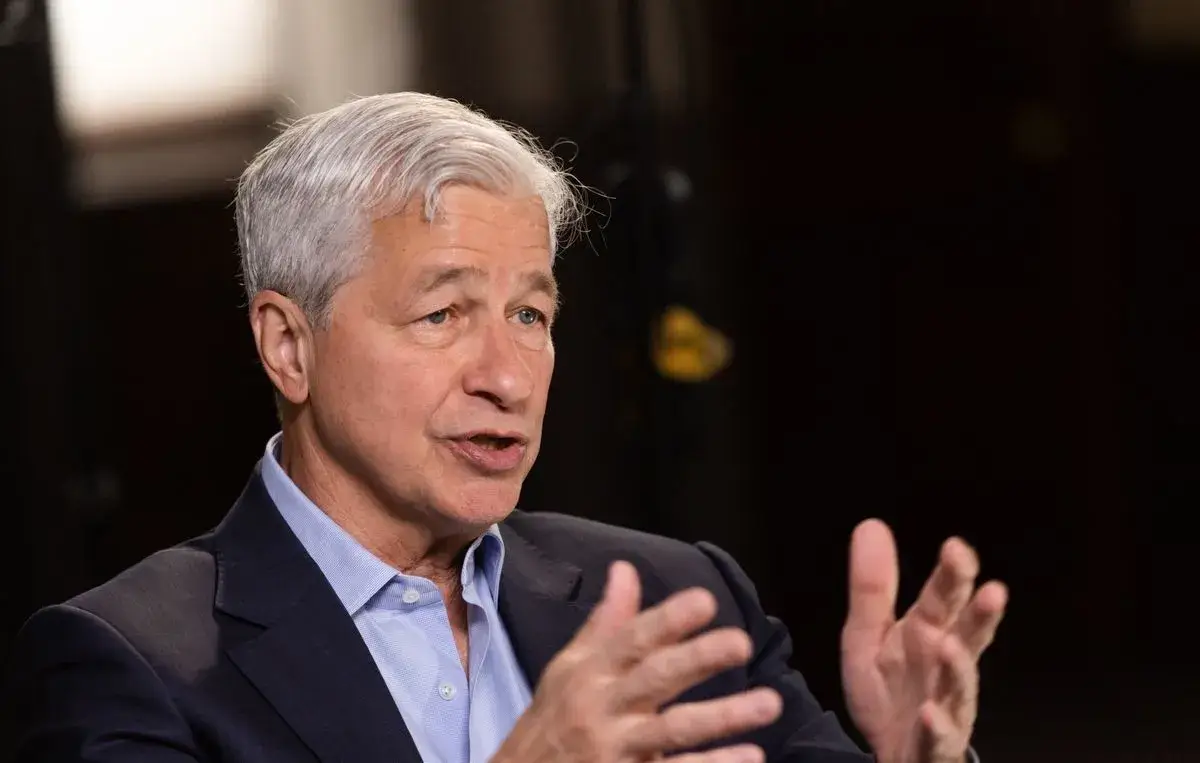Jamie Dimon Predicts Bond Market Shock, Urges U.S. to Fix Its Foundations
01.06.2025 11:00 2 min. read Alexander Stefanov
Jamie Dimon, CEO of JPMorgan Chase, has voiced fresh concerns about the state of the U.S. economy, warning that financial markets may be heading into troubled waters—particularly the bond market.
At a recent speaking engagement, Dimon suggested that the repercussions of excessive monetary expansion since 2020 have yet to fully surface. He predicted that a significant breakdown in the bond market is coming, one that could catch regulators off guard. While he reassured that JPMorgan would remain resilient, he acknowledged that financial turbulence could ironically benefit large institutions like his.
Dimon also pointed to a resurgence of investor pushback against reckless fiscal policies, describing the return of “bond vigilantes” who are selling off U.S. debt in protest of growing deficits. For Dimon, this signals deeper cracks in the nation’s financial foundations.
Shifting focus from global threats to domestic vulnerability, Dimon argued that America’s most pressing adversary is its own internal dysfunction. Without major reforms in areas like tax policy, education, immigration, and regulatory frameworks, he warned, the U.S. risks losing its global leadership status within decades.
He dismissed the popular narrative that digital assets like Bitcoin could serve as strategic reserves, instead urging a focus on tangible assets tied to defense and critical industries. “Forget Bitcoin,” he said in essence. “Stockpile what actually matters—resources, tech, and infrastructure.”
In Dimon’s view, America’s long-term stability hinges not on speculation, but on restoring its economic and institutional strength before time runs out.
-
1
Robert Kiyosaki Predicts When The Price of Silver Will Explode
28.06.2025 16:30 2 min. read -
2
Trump Targets Powell as Fed Holds Rates: Who Could Replace Him?
27.06.2025 9:00 2 min. read -
3
U.S. PCE Inflation Rises for First Time Since February, Fed Rate Cut Likely Delayed
27.06.2025 18:00 1 min. read -
4
Key U.S. Economic Events to Watch Next Week
06.07.2025 19:00 2 min. read -
5
Gold Beats U.S. Stock Market Over 25 Years, Even With Dividends Included
13.07.2025 15:00 1 min. read
Gold Beats U.S. Stock Market Over 25 Years, Even With Dividends Included
In a surprising long-term performance shift, gold has officially outpaced the U.S. stock market over the past 25 years—dividends included.
U.S. Announces Sweeping New Tariffs on 30+ Countries
The United States has rolled out a broad set of new import tariffs this week, targeting over 30 countries and economic blocs in a sharp escalation of its trade protection measures, according to list from WatcherGuru.
Key U.S. Economic Events to Watch Next Week
After a week of record-setting gains in U.S. markets, investors are shifting focus to a quieter yet crucial stretch of macroeconomic developments.
Robert Kiyosaki Predicts When The Price of Silver Will Explode
Robert Kiyosaki, author of Rich Dad Poor Dad, has issued a bold prediction on silver, calling it the “best asymmetric buy” currently available.
-
1
Robert Kiyosaki Predicts When The Price of Silver Will Explode
28.06.2025 16:30 2 min. read -
2
Trump Targets Powell as Fed Holds Rates: Who Could Replace Him?
27.06.2025 9:00 2 min. read -
3
U.S. PCE Inflation Rises for First Time Since February, Fed Rate Cut Likely Delayed
27.06.2025 18:00 1 min. read -
4
Key U.S. Economic Events to Watch Next Week
06.07.2025 19:00 2 min. read -
5
Gold Beats U.S. Stock Market Over 25 Years, Even With Dividends Included
13.07.2025 15:00 1 min. read


